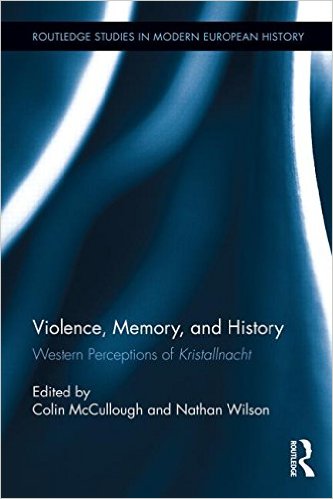Jewish Poland Revisited: Heritage Tourism in Unquiet Places
by Erica T. Lehrer
 Since the end of Communism, Jews from around the world have visited Poland to tour Holocaust-related sites. A few venture further, seeking to learn about their own Polish roots and connect with contemporary Poles. For their part, a growing number of Poles are fascinated by all things Jewish. Erica T. Lehrer explores the intersection of Polish and Jewish memory projects in the historically Jewish neighborhood of Kazimierz in Krakow. Her own journey becomes part of the story as she demonstrates that Jews and Poles use spaces, institutions, interpersonal exchanges, and cultural representations to make sense of their historical inheritances.
Since the end of Communism, Jews from around the world have visited Poland to tour Holocaust-related sites. A few venture further, seeking to learn about their own Polish roots and connect with contemporary Poles. For their part, a growing number of Poles are fascinated by all things Jewish. Erica T. Lehrer explores the intersection of Polish and Jewish memory projects in the historically Jewish neighborhood of Kazimierz in Krakow. Her own journey becomes part of the story as she demonstrates that Jews and Poles use spaces, institutions, interpersonal exchanges, and cultural representations to make sense of their historical inheritances.

 What did people hear about Kristallnacht outside of Germany in 1938 from governments and media sources? How did governments and ordinary people respond to the plight of the Jewish community there? How have lives been affected by Kristallnacht in the seventy years since its occurrence? This interdisciplinary study of erasure and enshrinement seeks to answer these questions, exploring issues of memory and forgetting (in both the material and symbolic sense), and how the meaning of Kristallnacht has been altered by various actors since 1938.
What did people hear about Kristallnacht outside of Germany in 1938 from governments and media sources? How did governments and ordinary people respond to the plight of the Jewish community there? How have lives been affected by Kristallnacht in the seventy years since its occurrence? This interdisciplinary study of erasure and enshrinement seeks to answer these questions, exploring issues of memory and forgetting (in both the material and symbolic sense), and how the meaning of Kristallnacht has been altered by various actors since 1938. Falko Schmieder is a DAAD visiting professor at the University of Minnesota and is currently teaching the course “History of the Holocaust.” He has studied Communications, Political Science and Sociology at various German Universities. Since 2005 he has worked as a researcher at the Center for Literary and Cultural Research Berlin. Together with
Falko Schmieder is a DAAD visiting professor at the University of Minnesota and is currently teaching the course “History of the Holocaust.” He has studied Communications, Political Science and Sociology at various German Universities. Since 2005 he has worked as a researcher at the Center for Literary and Cultural Research Berlin. Together with  Dilemmas, silence, active rescue, and passivity are words often associated with Pius XII. “Critics” emphasize the wartime Pope’s failure to condemn Nazism, while “defenders” maintain that Vatican neutrality facilitated rescue activities by the faithful. This publication, which consists of the oral presentations of scholars gathered at
Dilemmas, silence, active rescue, and passivity are words often associated with Pius XII. “Critics” emphasize the wartime Pope’s failure to condemn Nazism, while “defenders” maintain that Vatican neutrality facilitated rescue activities by the faithful. This publication, which consists of the oral presentations of scholars gathered at  The way people think about the Holocaust is changing. The particular nature of the transformation depends on people’s historical perspectives and how they position themselves and their nation or community vis-à-vis the tragedy. Understandably, European Muslims perceive the Holocaust as less central to their history than do other Europeans.
The way people think about the Holocaust is changing. The particular nature of the transformation depends on people’s historical perspectives and how they position themselves and their nation or community vis-à-vis the tragedy. Understandably, European Muslims perceive the Holocaust as less central to their history than do other Europeans.